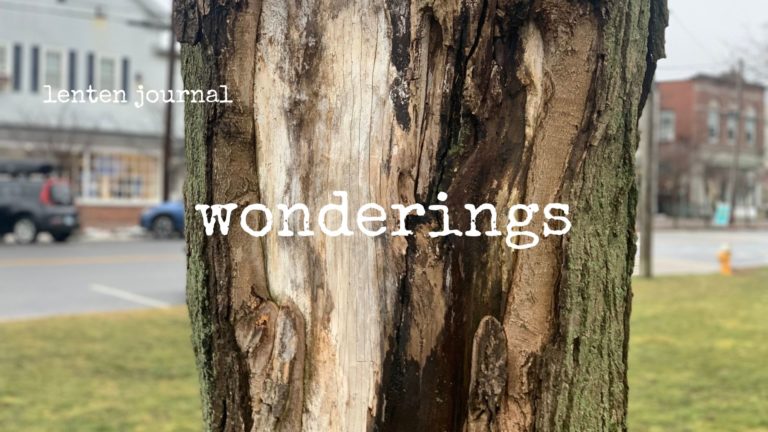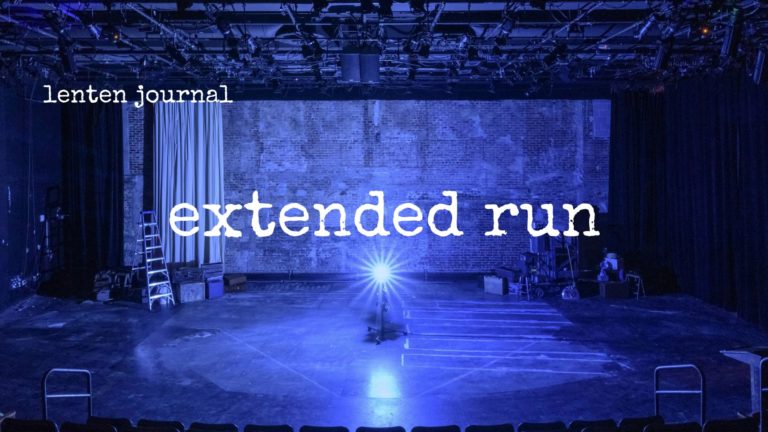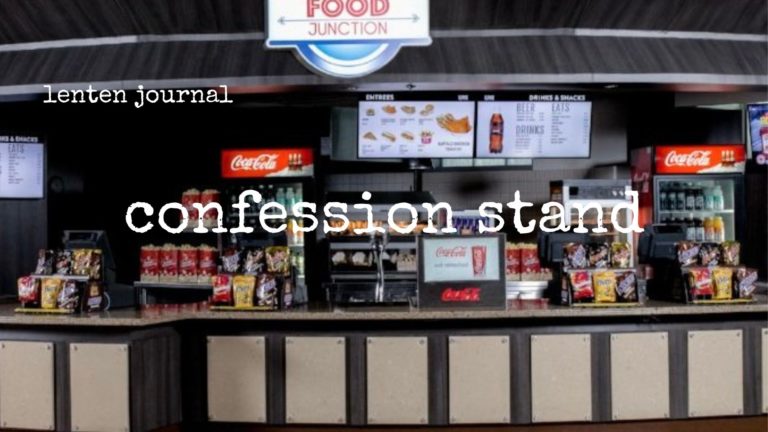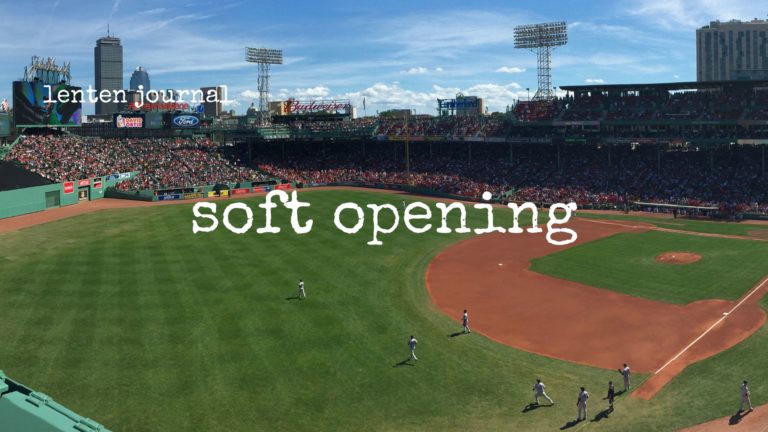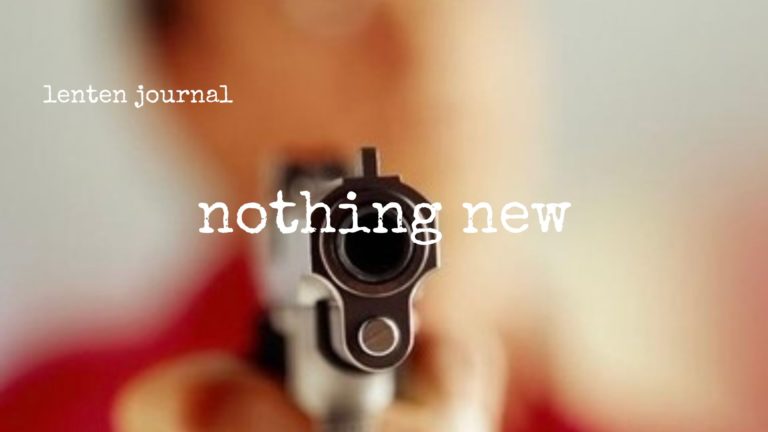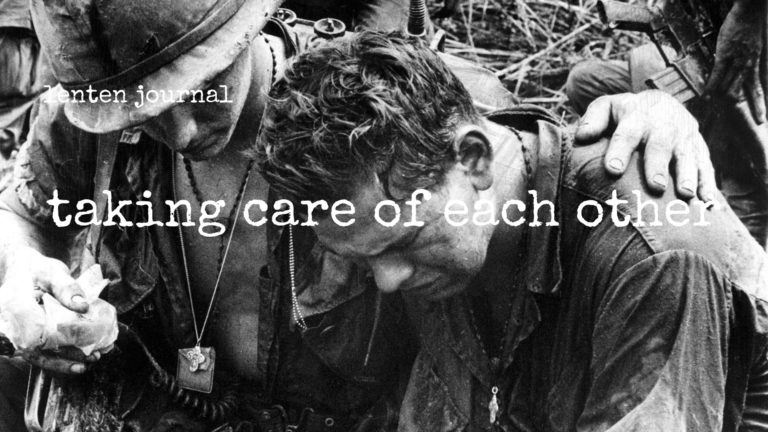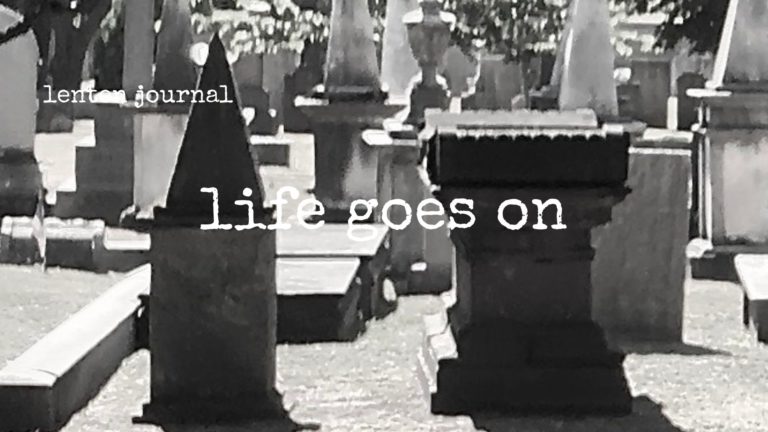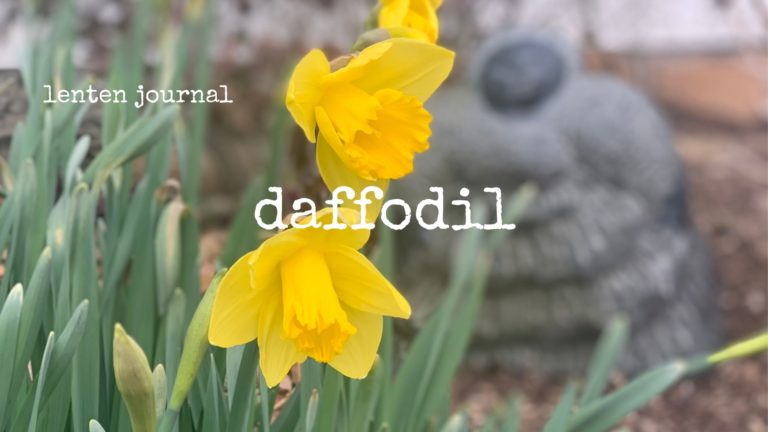My sermon this week is about the resurrection of Lazarus and wondering about what he might have felt about coming back to life, among other things.
_____________________
It is hard to turn a life into a coherent story–or, maybe the better way to say that is it is hard to turn a life into a single story. In this memoir-laden age, people try to do that all the time, but the reality of life is that it doesn’t conform that easily. Some things have to be left out, some things perhaps ignored or untold to keep the theme going, some things get forgotten.
At different points, the gospel writers drop hints that they knew they were not able to paint the whole picture of Jesus’ time on earth. John, whose gospel we have followed through much of Lent, said that if all the stories about Jesus were written down, the world wouldn’t have libraries enough to store all the volumes of information. So John chose the moments that help him paint the picture of Jesus he wanted most to be remembered, as did Matthew, Mark, and Luke.
That doesn’t mean they were being dishonest or careless, they were doing what it took to make a coherent story out of a human life. John, the more poetic of the quartet of gospel writers, built his biography around what biblical scholars call the seven “I am” statements of Jesus
I am the bread of life (6:35)
I am the light of the world (8:12)
I am the door (10:7)
I am the good shepherd (10:11, 14)
I am the resurrection and the life (11:25)
I am the way the truth and the life (14:6)
I am the true vine (15:1)
as a way to convey Jesus’ world-changing presence as the embodiment of God in the world, which is not an easy thing to do. Neither is preaching on this passage.
We talked last week about Jesus’ miracles being “parables of event,” meaning there is more to them than just a spectacular healing or a spontaneous banquet. John calls them signs, rather than miracles, as a way to highlight that point. After Jesus healed the blind man, he said, “I am the light of the world.”
Get it?
John may be a poet, but he is not particularly subtle.
In our story for today, Jesus says, “I am the resurrection and the life” before he calls Lazarus back to breathing. But if we reduce the blind man and Lazarus to object lessons or props for a point Jesus wanted to make, the accounts don’t match with Jesus’ consistent commitment to humanizing–to noticing and caring for–the people around him.
After the formerly blind man caused all sorts of commotion with his vision, Jesus and the disciples went back out into the wilderness–back to where he was baptized, which was also near where he fasted and was tempted with all the ways he could use his power for his benefit. You may remember: turn the stones to bread so you can eat; throw yourself off the temple and let the angels catch you; sell your soul to gain political power. The baptism site was also where he heard the voice say, “This is my beloved Son in whom I delight.”
While they were out there, Lazarus became deathly ill. His sisters sent word to Jesus asking him to come, but he waited two days before they started walking back to Bethany. No one knows why he waited. When he gets there and both sisters lament that he waited too long, and as he is surrounded by those grieving Lazarus’ death, he got angry. Our translation says, “troubled and disturbed,” but the word means agitated or indignant, so much so that his anger brought him to tears.
Jesus wept–and then he called Lazarus out of the tomb, even though his body had begun to decay and he was rather odiferous; even though he was wrapped up in grave clothes. We have no record of him saying anything, or Jesus speaking to him. After Jesus tells the people to unbind him, John’s story takes a different turn and focuses on some of those who wanted to kill Jesus.
I said earlier that this is a hard passage to preach about. The main reason is I keep wondering how Lazarus felt when he came stumbling out of the tomb after four days of death. I wonder if he was glad to be alive, or if he thought about having to die again, or if he was angry also. One ancient tradition says that the bits of decay that had begun on his body never healed after his resurrection, and he lived with the scars until he died again. There’s not really anything in the story that supports that, but it does seem like Lazarus would have lived with some trauma after they unwrapped him. After all, he had no say in what happened; life just went on.
There is not a cohesive explanation of this story that ties everything up in a nice bow–perhaps made from the cloth that ensconced Lazarus–and leaves us all feeling good like we do at the end of a hopeful novel or movie. This is not that kind of tale. It’s another messy miracle like the one we read last week, because life is messy. Mary and Martha both said, “If you had only been here, this wouldn’t have happened.” Our lives are full of contingencies like that. We are a part of circumstances beyond our control most every day. We share in the grief that Jesus, Mary, and Martha knew; we understand Jesus’ agitation when we face circumstances that leave us feeling cornered; we may even identify with Lazarus as one who needs someone to say, “Unbind them and let them go.”
And life goes on.
The hope of our faith is not that life–any life–leads to a happy ending, but that in the middle of the mess God is with us. Jesus said, “I am the resurrection and the life”–whatever lies beyond death, life is happening right now, and Christ is present in our contingencies.
We are two Sundays away from celebrating Jesus’ resurrection, an event that is central to our faith, that gives us hope that love is stronger than death, and, even so, people have died every day since Mary first found the empty tomb. And in all of it, God is with us.
In times of peace, in times of trauma—God is with us.
In times of heartache and times of hope—God is with us.
In times of confusion and times of exhaustion—God is with us.
In times of laughter and in times of grief—God is with us.
Whatever the circumstance, life goes on and God is with us. Amen.
